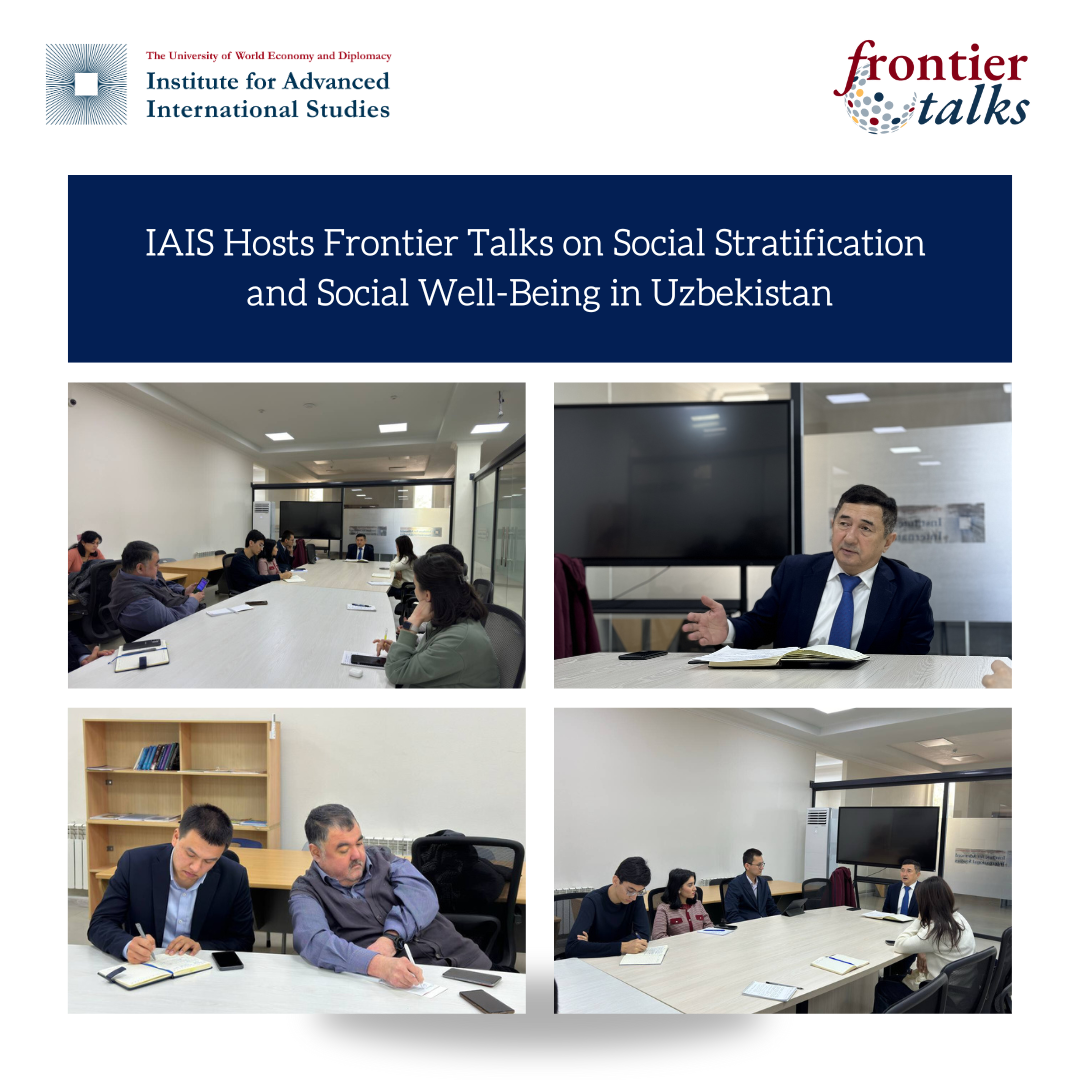
The Institute for Advanced International Studies (IAIS) hosted a Frontier Talks session titled “Social Stratification and Social Well-Being of the Population of Uzbekistan: Risks and Challenges”, featuring Marat Khadjimukhamedov, First Deputy Director of the Republican Center for the Study of Public Opinion “Ijtimoiy Fikr”.
In his presentation, Mr Khadjimukhamedov provided an in-depth overview of the development of sociological research in Uzbekistan, tracing its evolution since independence. He highlighted the growing role of evidence-based analysis in shaping public policy and underscored the importance of sociological studies in understanding the dynamics of Uzbek society.
Following this contextual introduction, Mr Khadjimukhamedov delved into the complexities of social stratification in the country. Drawing from recent findings by “Ijtimoiy Fikr”, he examined the disparities in income, education, and resource access that influence social cohesion and overall well-being. He further outlined the risks posed by these inequalities, particularly in light of Uzbekistan’s ongoing socio-economic transformations, and proposed strategies for fostering greater social equity through targeted policies.
The session concluded with a lively discussion, during which participants, including academics, students, and policy analysts, engaged with the speaker on the implications of these findings. They explored questions around effective governance, regional disparities, and the integration of sociological insights into policy frameworks aimed at reducing social vulnerabilities.
The Frontier Talks platform remains a flagship initiative of IAIS, providing a platform for expert dialogue on pressing national and global issues. Future sessions are expected to continue fostering innovative solutions through interdisciplinary collaboration.